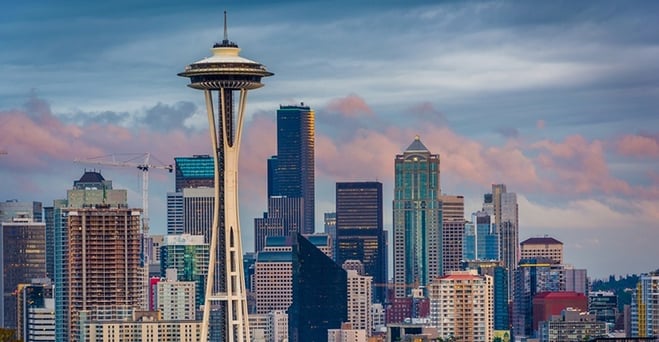3 Issues Your Seattle Commercial HVAC System May be Facing Right Now
Managing a large commercial facility in Puget Sound can be a constant juggling act. Dozens of tasks need your attention every day, and at times, everything seems to be urgent. In this scenario, it pays to learn how to identify and fix common issues with the building’s mechanical systems so you can avoid major repairs and the disruption they inevitably cause.

To that end, here is a quick, practical guide for building owners and facility managers to diagnose and reverse three common commercial HVAC problems that may be affecting your building right now:
Issue #1: Noise
Vents or ductwork that make a lot of noise can be bothersome for tenants and customers alike. If it’s severe, it could even affect productivity or sales. If you’re getting complaints about noisy ventilation, potential causes are:
- Broken or loose fan blades
- Broken or cracked air ducts
Sometimes, irritating noise comes from the heating or cooling units themselves. If you have access to the unit, this can be determined by get close enough to the machinery to hear if the sounds correspond to noise elsewhere in the building, and if they are louder near the unit.
Reverse the issue: Call a pro
In all cases, identifying and resolving the issue is best handled by professional commercial HVAC technicians who have the tools and experience to access all the system fans and ductwork meticulously. Contact your trusted commercial HVAC company to have an experienced professional sent out to assess the situation.
Issue #2: Air quality
If tenants in one area of the building complain about the air being stuffy or otherwise being of low quality, it could be a sign that one or more of the HVAC components servicing that section of the building needs maintenance. On the other hand, if the air quality issue is affecting the whole building, this can indicate an issue with the mechanical equipment itself.
Here are some common causes of poor air quality in commercial systems:
- Dirty air filters
- Stagnant water in the ducts or air intakes
- Debris melted onto the heat exchanger
- Dirty or worn mechanical parts that are overheating
Reverse the issue: Routine maintenance
All of these common causes of low air quality can be identified and resolved with a strategic planned maintenance program. Routine maintenance performed by a certified professional should catch these issues before they harm air quality. A comprehensive maintenance plan includes visual inspections of the ventilation ducts and machinery, regular cleaning, and (if necessary) strategic repairs and replacements of parts that can become worn over time.
Issue #3: Billing fluctuations
Sometimes, the HVAC system seems to be operating fine, but there are unusual fluctuations reflected in utility bills.
This can sometimes mean the system is not performing efficiently due to a mechanical or electronic problem that needs to be resolved. As a result, it’s using more energy than usual to do its job. There are many possible reasons:
- Dirty equipment and ducting
- Old and worn equipment
- Malfunctioning or inoperable system components
- Malfunctioning electronic controls
Reverse the issue: Seek consultation
While all of these issues can be identified fairly simply, they require different solutions. The best option in each case is to have a trained professional perform an operational assessment and complete a thorough inspection of the system and the energy usage. That way, they’ll be able to properly identify the root cause(s) of the problem.
A building automation and analytics system can be very helpful in both diagnosing and treating this concern. This kind of system can control and monitor your HVAC system using electronic sensors and even self-optimize using machine learning and artificial intelligence.
At PSR Mechanical, our experienced commercial HVAC staff is here to answer your questions and discuss your options for resolving common problems with your commercial building’s heating and cooling systems.

